Abstract
We carried out five experiments with rats on fixed-time schedules in order to define the relation between drinking and individual food-pellet presentations. In Experiment 1, unsignaled extra food occurred at the end of occasional fixed intervals, and we compared subsequent drinking patterns with drinking before the extra food presentation. In Experiment 2 we presented signaled and unsignaled extra food and measured elicited and anticipatory drinking patterns. In Experiment 3, we observed the persistence of modified drinking patterns when several consecutive intervals ended with extra pellets. In Experiments 4 and 5, we varied the magnitude of food delivery across (rather than within) sessions to replicate published findings. Results show that schedule-induced drinking is neither elicited by food presentations nor induced by stimuli associated with a high food rate. All subjects seemed to follow a simple rule: during any stimulus signaling an increase in the local probability of food delivery within a session, engage in food-related behavior to the exclusion of drinking. Schedule-induced drinking appears to be the result of dynamic interactions among food-related behavior, drinking, and other motivated behavior, rather than a direct effect of the contingencies of food reinforcement.
Keywords: Schedule-induced drinking, adjunctive behavior, interim activities, response interactions, reinforcer magnitude, inhibition, rats
Full text
PDF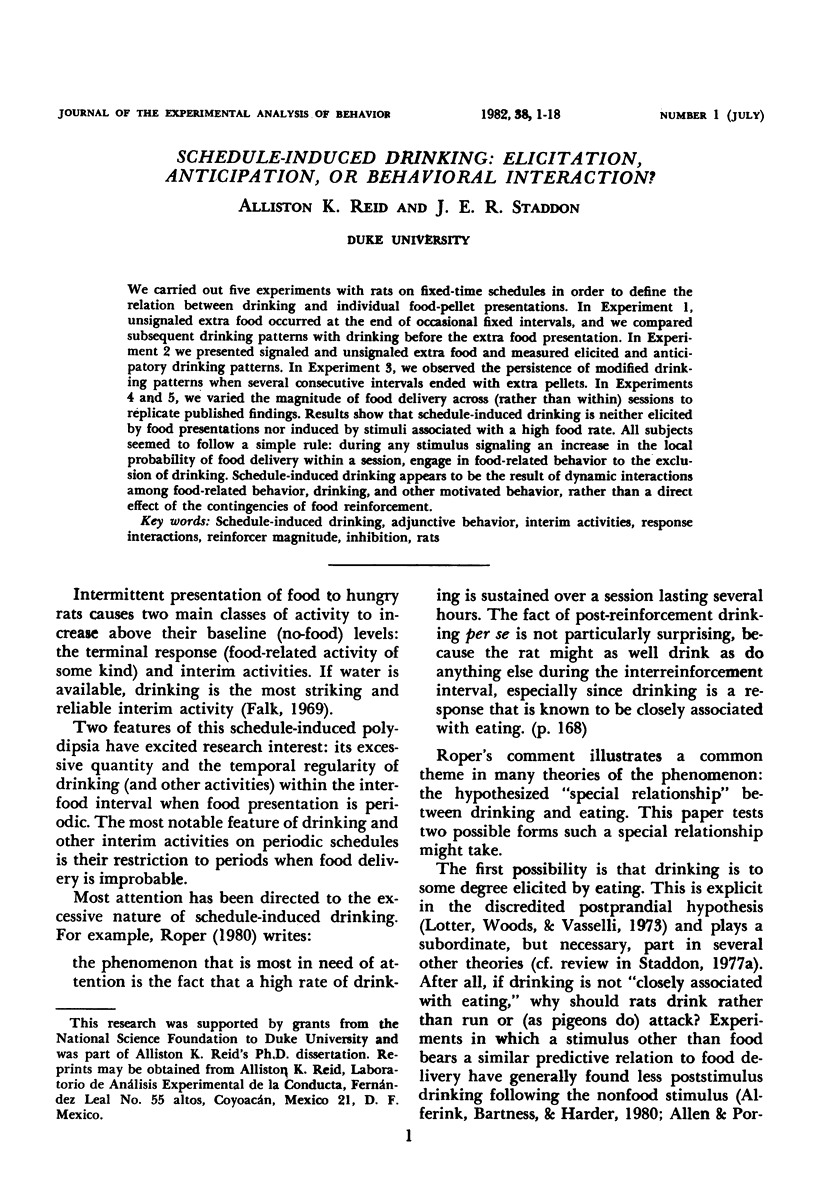
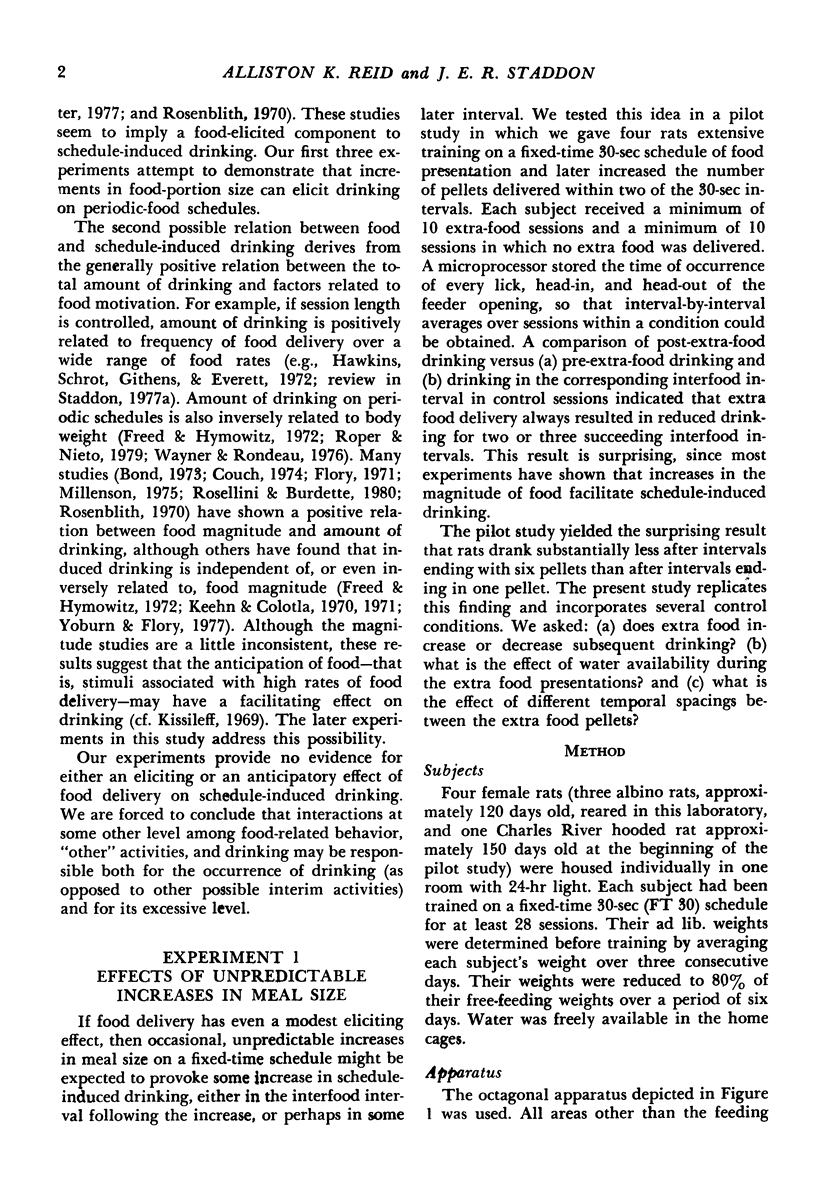

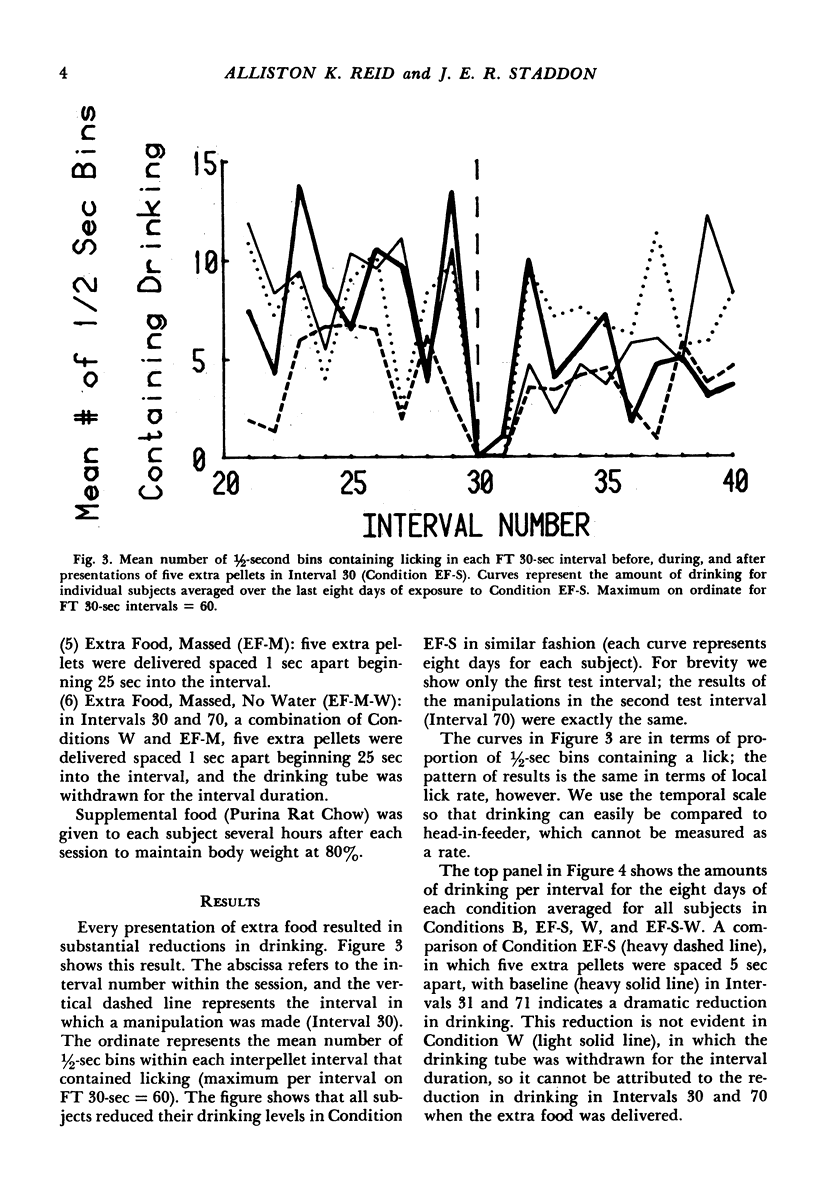

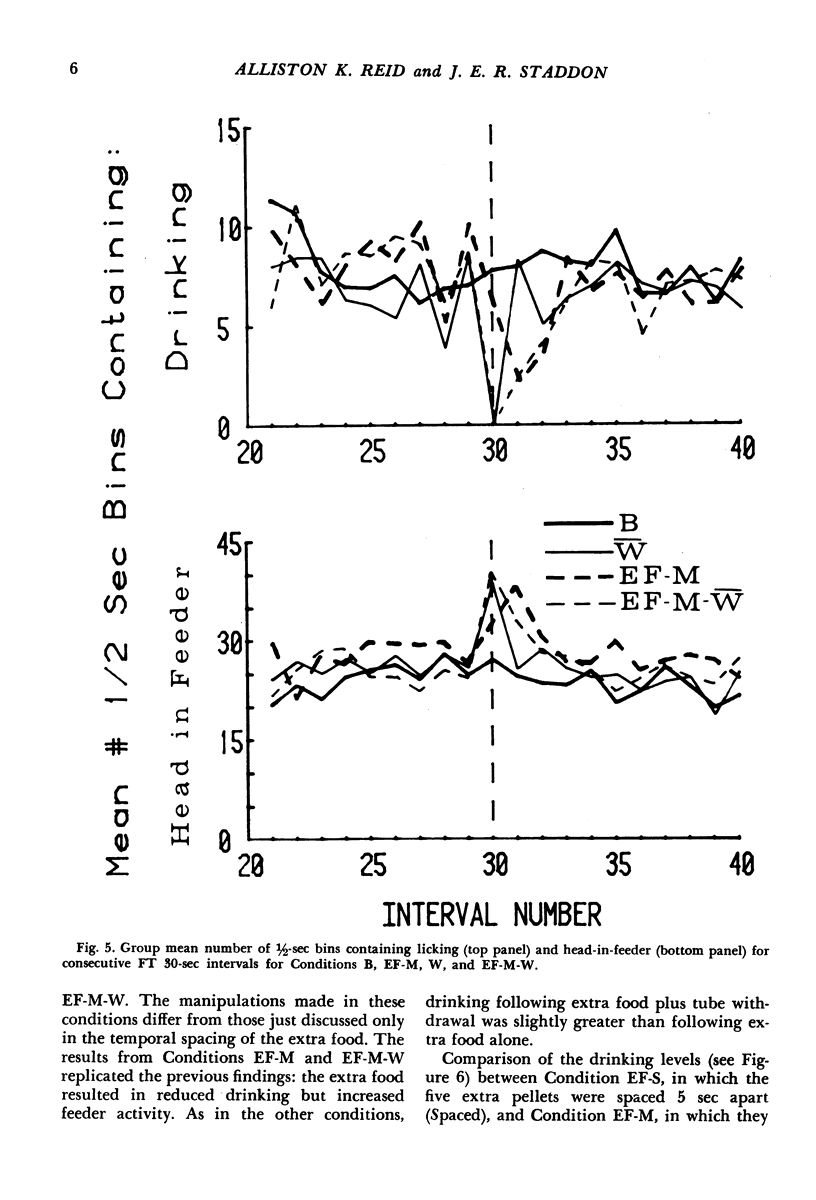

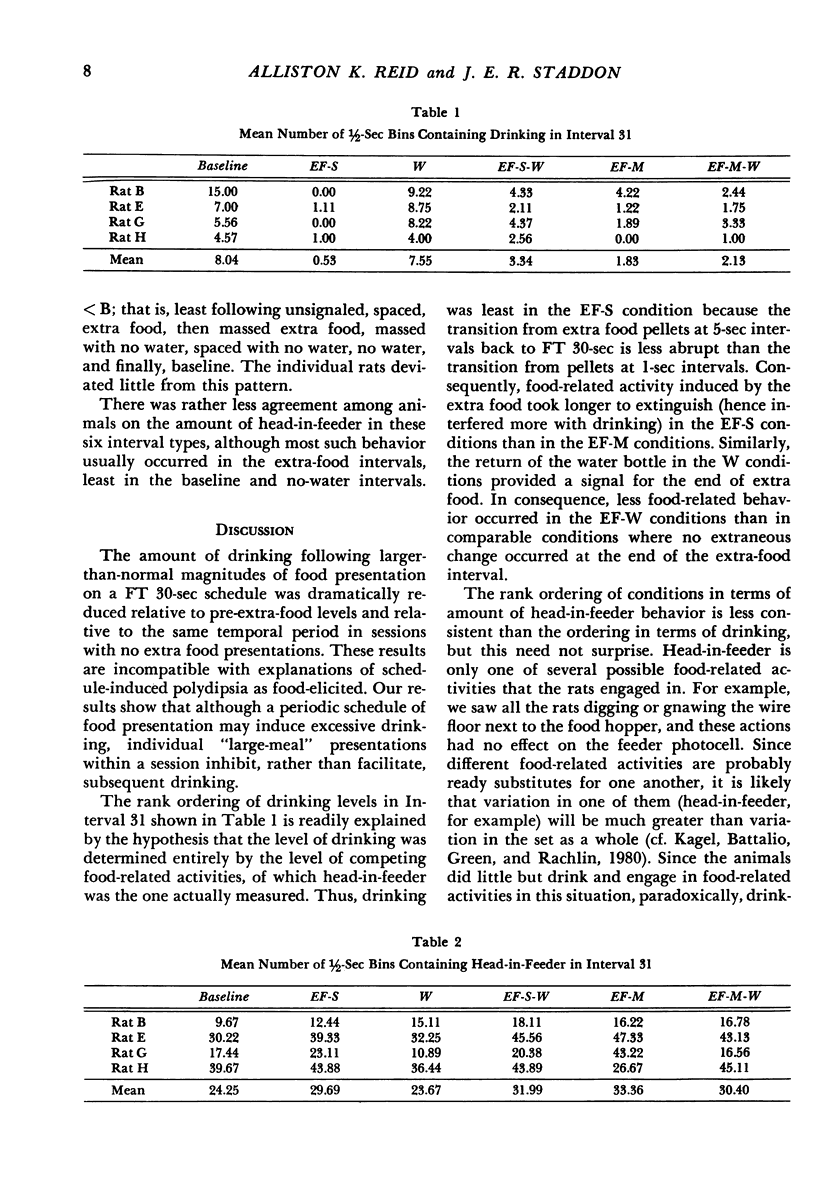
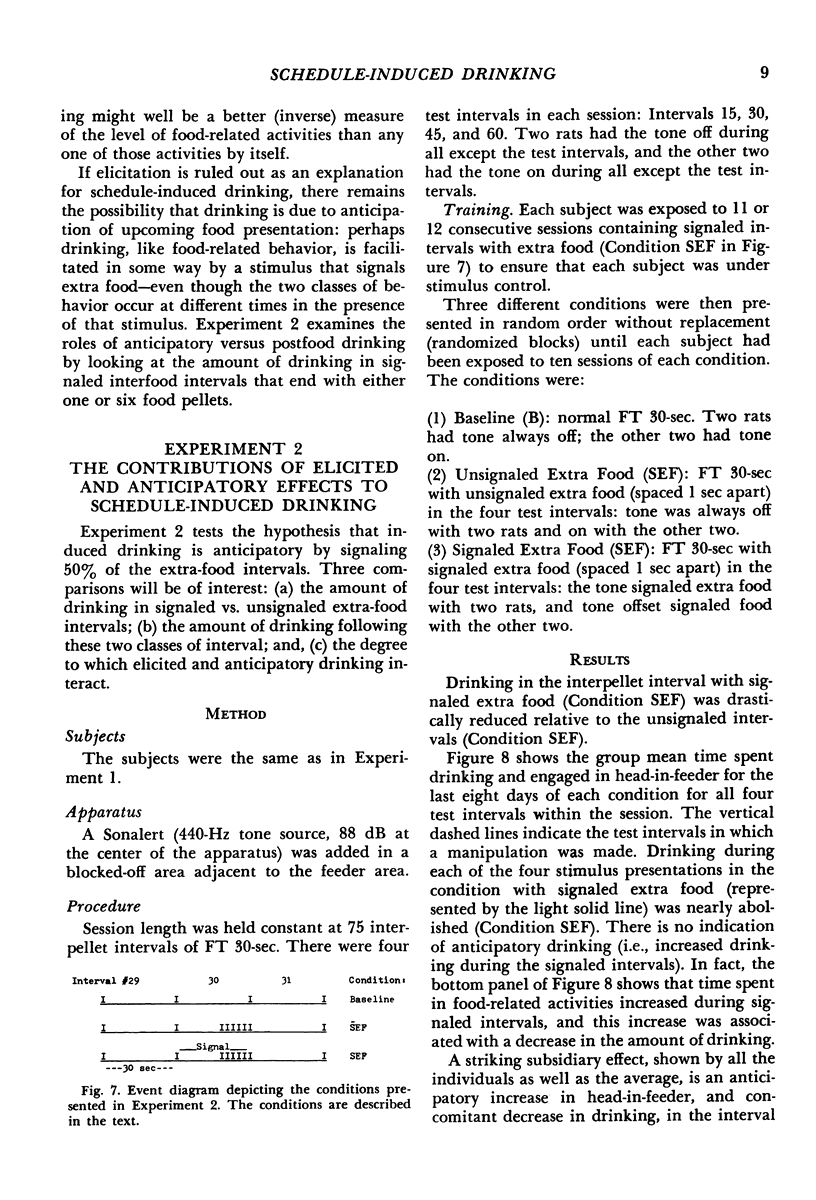
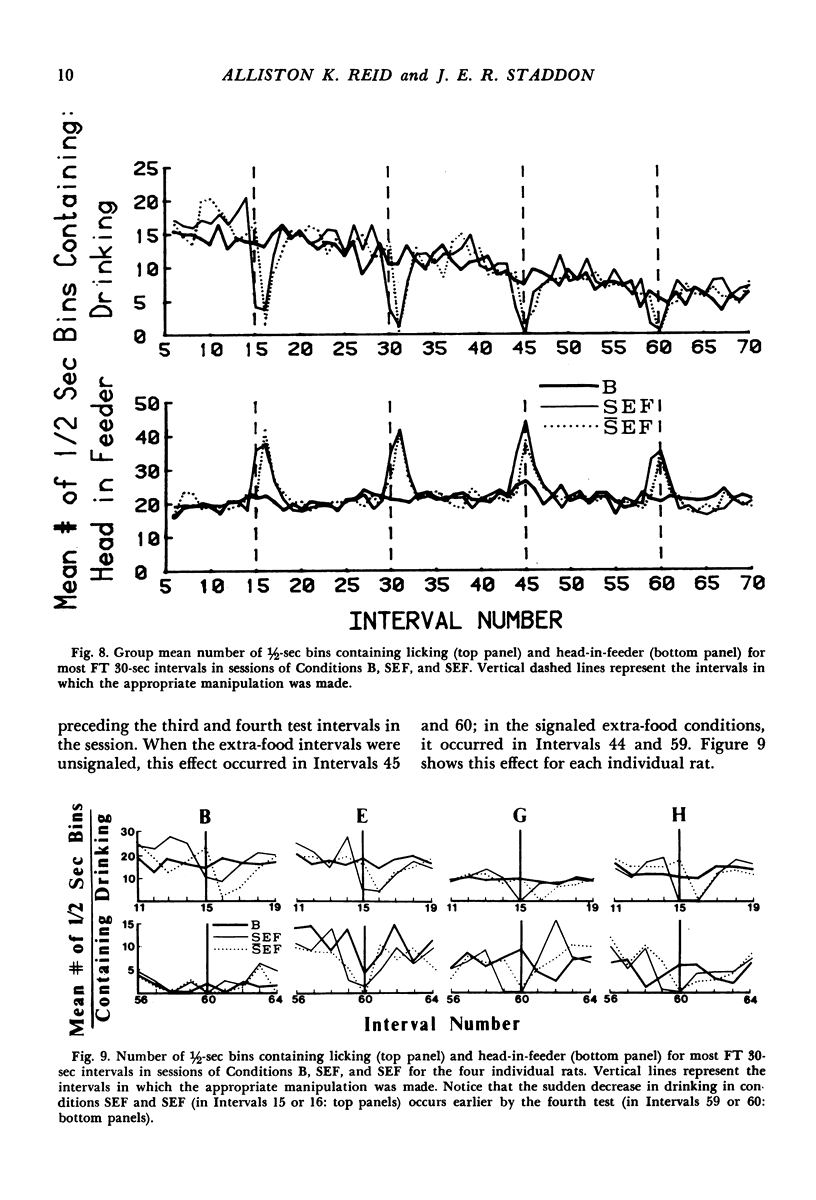


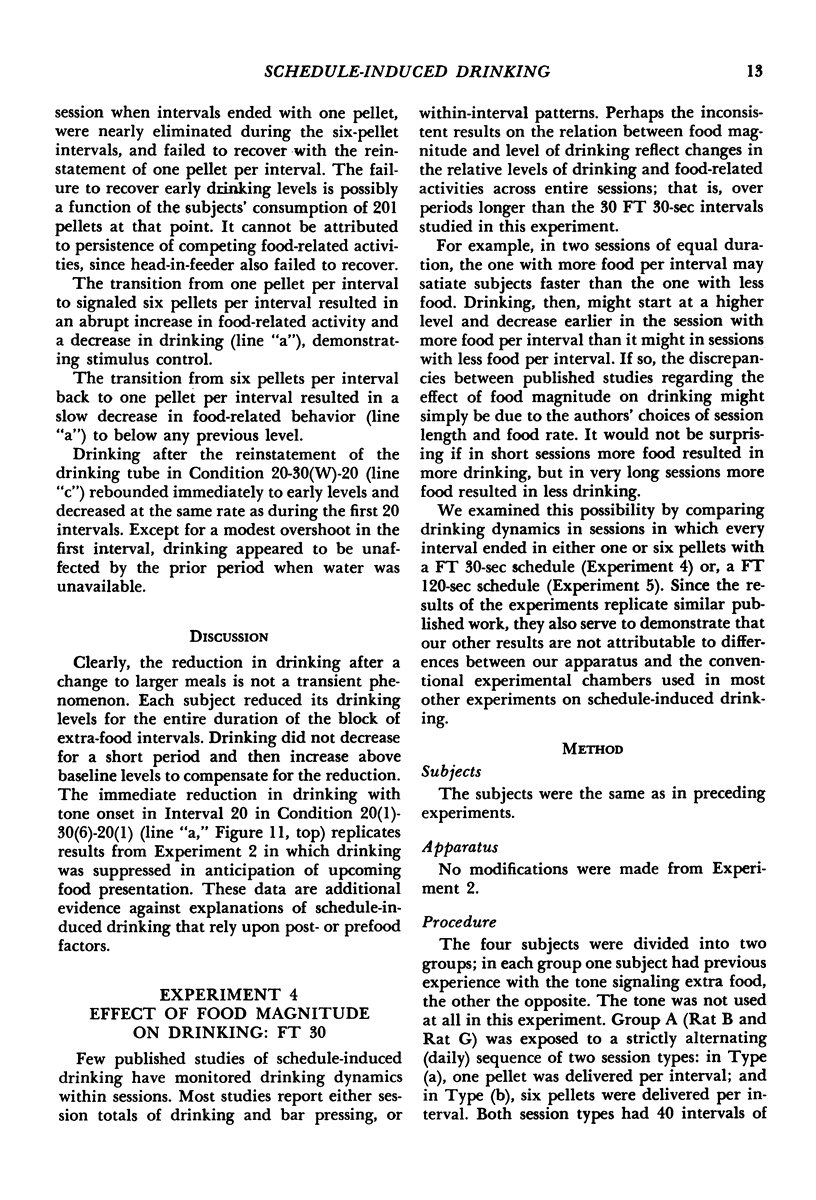
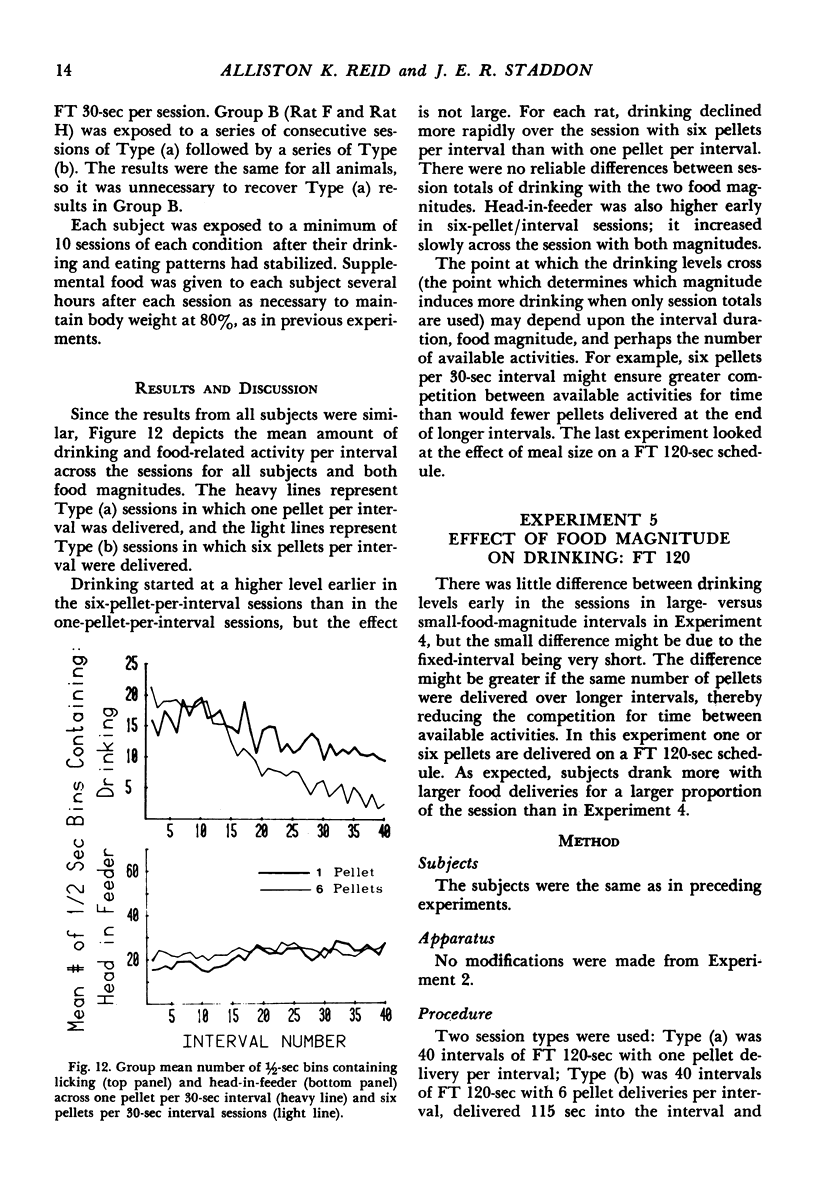

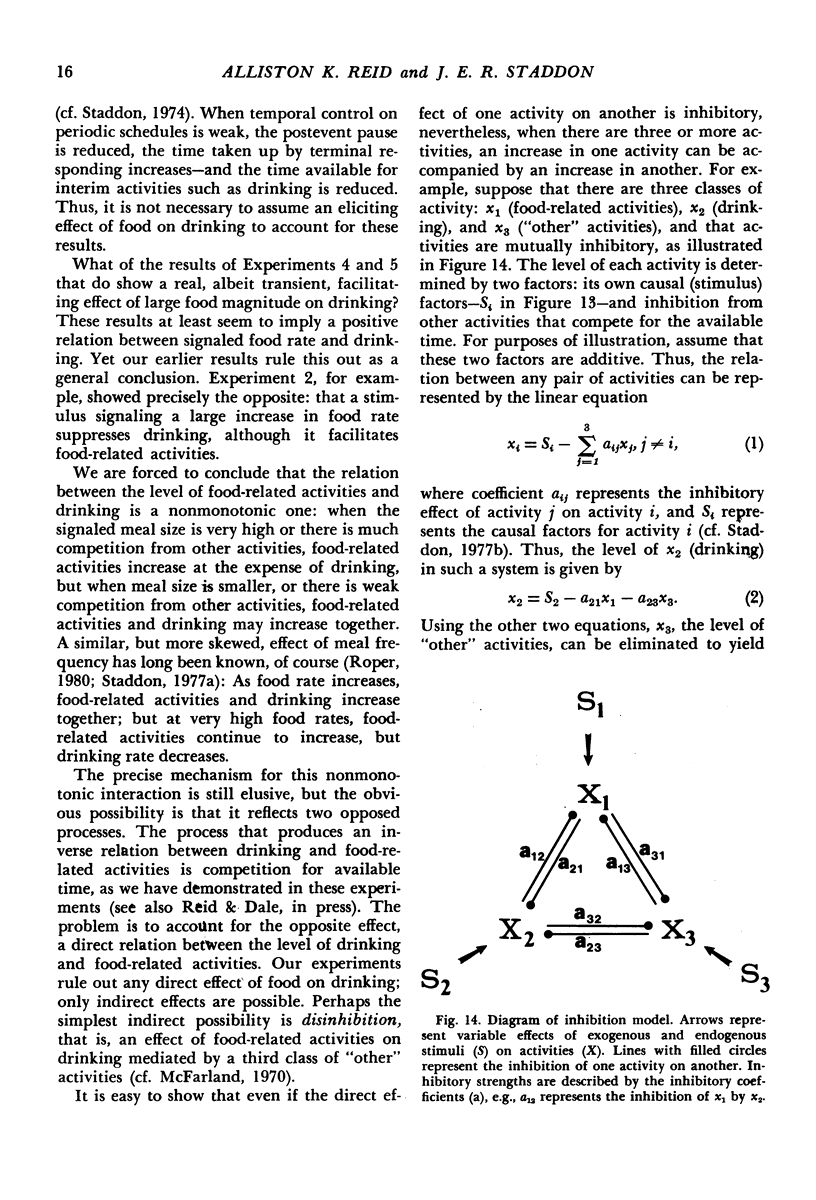

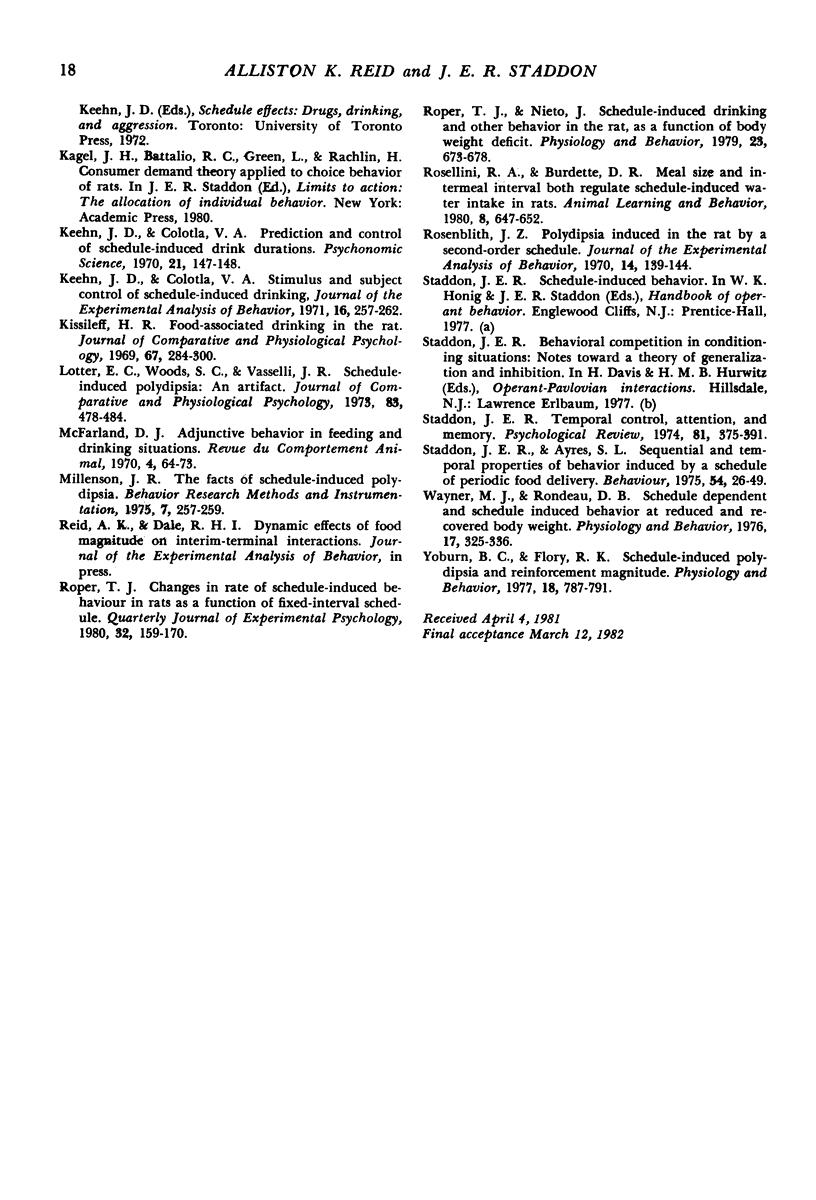
Selected References
These references are in PubMed. This may not be the complete list of references from this article.
- Alferink L. A., Bartness T. J., Harder S. R. Control of the temporal locations of polydipsic licking in the rat. J Exp Anal Behav. 1980 Jan;33(1):119–129. doi: 10.1901/jeab.1980.33-119. [DOI] [PMC free article] [PubMed] [Google Scholar]
- Allen J. D., Porter J. H. Sources of control over schedule-induced drinking produced by second-order schedules of reinforcement. Physiol Behav. 1977 May;18(5):853–863. doi: 10.1016/0031-9384(77)90194-9. [DOI] [PubMed] [Google Scholar]
- Cope C. L., Sanger D. J., Blackman D. E. Intragastric water and the acquisition of schedule-induced drinking. Behav Biol. 1976 Jun;17(2):267–270. doi: 10.1016/s0091-6773(76)90631-3. [DOI] [PubMed] [Google Scholar]
- Falk J. L. Conditions producing psychogenic polydipsia in animals. Ann N Y Acad Sci. 1969 May 15;157(2):569–593. doi: 10.1111/j.1749-6632.1969.tb12908.x. [DOI] [PubMed] [Google Scholar]
- Freed E. X., Hymowitz N. Effects of schedule, percent body weight, and magnitude of reinforcer on acquisition of schedule-induced polydipsia. Psychol Rep. 1972 Aug;31(1):95–101. doi: 10.2466/pr0.1972.31.1.95. [DOI] [PubMed] [Google Scholar]
- Keehn J. D., Colotla V. A. Stimulus and subject control of schedule-induced drinking. J Exp Anal Behav. 1971 Sep;16(2):257–262. doi: 10.1901/jeab.1971.16-257. [DOI] [PMC free article] [PubMed] [Google Scholar]
- Kissileff H. R. Food-associated drinking in the rat. J Comp Physiol Psychol. 1969 Mar;67(3):284–300. doi: 10.1037/h0026773. [DOI] [PubMed] [Google Scholar]
- Lotter E. C., Woods S. C., Vasselli J. R. Schedule-induced polydipsia: an artifact. J Comp Physiol Psychol. 1973 Jun;83(3):478–484. doi: 10.1037/h0034670. [DOI] [PubMed] [Google Scholar]
- Roper T. J., Nieto J. Schedule-induced drinking and other behavior in the rat, as a function of body weight deficit. Physiol Behav. 1979 Oct;23(4):673–678. doi: 10.1016/0031-9384(79)90159-8. [DOI] [PubMed] [Google Scholar]
- Rosenblith J. Z. Polydipsia induced in the rat by a second-order schedule. J Exp Anal Behav. 1970 Sep;14(2):139–144. doi: 10.1901/jeab.1970.14-139. [DOI] [PMC free article] [PubMed] [Google Scholar]
- Wayner M. J., Rondeau D. B. Schedule dependent and schedule induced behavior at reduced and recovered body weight. Physiol Behav. 1976 Aug;17(2):325–336. doi: 10.1016/0031-9384(76)90083-4. [DOI] [PubMed] [Google Scholar]
- Yoburn B. C., Flory R. K. Schedule-induced polydipsia and reinforcement magnitude. Physiol Behav. 1977 May;18(5):787–791. doi: 10.1016/0031-9384(77)90184-6. [DOI] [PubMed] [Google Scholar]


